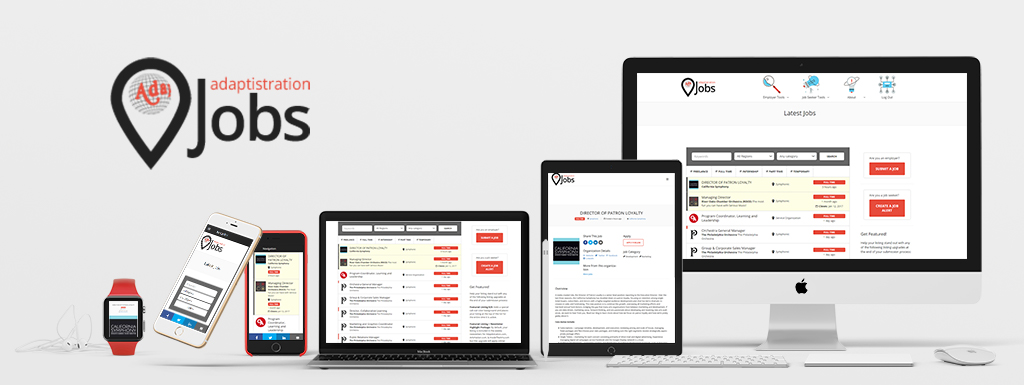Marty Ronish over at Scanning The Dial posted an article on 4/30/2010 that brought a pay-to-play scandal in Seattle to my attention. Marty’s article was, in turn, based on an article in The Stranger that reports local Seattle television station KING 5 developed a segment for their New Day Northwest program that has the appearance of a spontaneous arts related morning show segment but is, in fact, a paid advertisement…
 Beyond the obvious problems, the part which caught my attention is the fact that the station sold an entire year’s worth of weekly appearances to a single performing arts group, 5th Avenue Theatre, which then uses the segments it wants and resells the rest to other arts groups. According to The Stranger, segments sold by 5th Avenue Theatre go from $3000 to $6000 each.
Beyond the obvious problems, the part which caught my attention is the fact that the station sold an entire year’s worth of weekly appearances to a single performing arts group, 5th Avenue Theatre, which then uses the segments it wants and resells the rest to other arts groups. According to The Stranger, segments sold by 5th Avenue Theatre go from $3000 to $6000 each.
It’s no secret that performing arts groups compete with one another in a number of ways, no differently than Coca-Cola and Pepsi. In fact, there’s nothing inherently wrong with that.
But let’s also assume for the sake of the discussion that the spots were identified as paid advertisements in such way as to eliminate much of apparent pay-for-play conflict of interest. Even if you reach that point, the station’s decision to allow one arts group the power to resell an entire year’s spots is something that is difficult to sidestep.
Nonetheless, 5th Avenue Producing Artistic Director, David Armstrong, published a post at the organization’s blog on 4/30/2010, presenting his perspective behind why the organization decided to move in this direction. Armstrong doesn’t acknowledge the potential troubles associated with the reselling issues or how 5th Avenue became the only local arts group to be involved with the station before New Day Northwest was set into production in any detail other than this:
“I wish that we had had more time to talk to the arts community about this project in advance but the show was put into production on a very fast time frame.”
Armstrong also indicates that 5th Avenue “diverted money that we would have spent on other forms of advertising to try [the arrangement with KING 5] out.” There’s no mention of the impact the New Day segments have had, or the resulting negative press coverage, on 5th Avenue ticket sales.
What do you think? What sorts of issues do you think deserve attention here or is this all much ado about nothing? I’m also curious to know what you would think if this were applied to other mediums. For example, what if one arts group purchased all of the advertisement space in the local newspaper for the months of September through December and was then allowed to resell any of that space to other arts groups as they saw fit?
Postscript: It’s wonderful to see David Armstrong use 5th Avenue’s blog in this fashion and that they are allowing comments. But at the time this article was published, your single comment was a piece of spam that includes a link to a pornography site. You might want to consider adopting some blogging best practices and moderate your comments as criminals like this always manage to find a way through spam filters from time to time.
*This article’s original title was “Desperate Playwrights” but was changed to the current version on 5/15/2010. For more behind this decision, see this discussion thread below as well as this discussion thread at Paul Mullin’s blog.



Armstrong’s post, enlightening–he apparently gets to decide what appears on KING! Gee, I naively thought that’s what the show’s producer was supposed to do. Also, he doesn’t say whether the 5th Avenue makes a profit jobbing these spots for KING. And if they don’t, why are they doing it? Staff is busy enough, I should think.
I thought non-profits were barred from generating revenue with non-mission related enterprises…what about you? Maybe the Theatre has a subsidary corporation that manages this type of revenue.
Why the title? As one of many nationally produced playwrights that live in Seattle, I can tell you that we actually are nearly unanimous in being appalled by this arrangement. In fact, I wrote about it here: http://www.paulmullin.org/just-wrought/2010/04/the-seattle-rep-and-the-fifth-avenue-take-a-walk-on-the-sleazy-side.html
And the rest of my blog is almost entirely dedicated to how the big houses in this town, like the 5th and the Rep ignore, to their detriment, the local talent pool of writers. (This essay encapsulates the argument: http://www.paulmullin.org/just-wrought/2010/01/locally-grown-draft.html)
So why blame the victim?
Sorry for the delayed reply – have you attempted to post a reply via comment to Mr. Armstrong’s blog post on the matter? I’d be curious to see how he would reply.
As for the title, I think you may be reading into more than what’s there but I apologize if it offended.
Paul and I have been exchanging messages and updating our respective posts, more on that here: http://www.paulmullin.org/just-wrought/2010/05/chicago-blog-examines-5threp-payola-mess-slaps-playwrights-pointlessly.html#comments
My theatre decided to steer clear of this whole situation, but I do want to clarify something that isn’t clear in your article, as Sunny Side’s comment shows. The 5th did offer to sell off some of its committed spots, but never at a profit and more often at a discount. They were, in effect, subsidizing the other arts organizations that joined in the effort.
That being said, I have said before I think it was misguided.The whole situation casts arts orgs in a very weak light – we can only get attention if we pay for it. I think the battle for attention needs to be fought on a very different front.
Interesting, thanks Jim. I suppose without direct confirmation from 5th Ave, it isn’t possible to say exactly what their pricing parameters were/are. It makes me wonder if there was/is a fixed scale or if it slid from one buyer to the next. Without knowing what the spots were originally purchased for and the rate(s) they were offered, it’s hard to determine one way or another.
I do think you’re right on target about how it casts arts orgs. To that end, I think it also perpetuates the negative stereotype that arts managers are inferior to for-profit peers.
Hello there:
I’m the PR Guy at The 5th, and am posting because of your comment that thus far the Theatre hasn’t weighed in on your post.
Firstly, Brendan’s original article was incorrect. The 5th agreed to purchase 13 weeks of programming, not a year. (This is one of several mistakes in the piece.)
Secondly, while some of these slots were offered to other Seattle organizations for purchase via KING’s Media buyer, no money was ever given by any of these groups to The 5th. What’s more, in each case the balance of the money that these groups gave was made up by our organization. We were subsidizing these arts groups for their appearances. So no, we could not and did not seek a profit from anyone involved.
Thirdly, as David and I have said, ability to pay has never been the primary determining factor in offering these slots to other groups. If they aren’t able to pay anything, not even a pittance, that hasn’t excluded anyone from being featured on a segment.
Fourthly, despite Mr. Mullin’s assertions, no other group of Seattle playwrights have so much as commented on this situation–not the Dramatists Guild, not the Northwest Playwrights Alliance–not anyone except for Mr. Mullin, actually. So it’s quite a stretch of imagination for him to claim that the opinion of Seattle playwrights is “nearly unanimous–” which is true as long as Mr. Mullin is only polling himself.
Fifthly, I’d again just echo the point that David has made repeatedly–we’d love it if there was a local TV station that was willing to give us weekly coverage, or weekly coverage of Seattle’s theatre scene for that matter. But in the 15 years I’ve been here in Seattle no one has. In the absence of such programming, we’ve chosen to supplement what free coverage we do get with this above-board marketing initiative.
To me there’s clearly confusion on the part of Mr. Kiley and Mr. Mullin as to what’s PR and what’s Marketing. To claim that this behavior is “sleazy” or in any way unethical seems to me to misunderstand the fundamental distinction between paid advertising and unpaid media coverage. We pay for this programming just as we pay for posters, billboards, and newspaper ads, and have never attempted to hide it–it’s right there in the show’s credits.
At a time when traditional medias are collapsing and reconfiguring at a bewildering pace, this whole issue seems to me about as relevant as an argument about proper dinnerware placement during an earthquake. Whether or not we continue our arrangement with KING 5, the relationship artists have with the media is in serious need of new models and new ideas. Until critics of this arrangement start to come up with some, I really don’t see what the point of all of this palaver is.
Thanks for the additional information John, I appreciate it. I’m curious to know more about the details behind the written agreement between 5th Ave and KING5. In particular:
1) Is the agreement drawn up as a straight up advertisement, working relationship agreement, or something else? If so, what?
2) What amount did 5th Ave pay KING5 and how does the written agreement dictate terms related to reselling segments?
3) How much did 5th Ave know about how KING5 planned to label the advertisement segments and when were they made aware?
4) What process is 5th Ave using to track the impact of the advertisements on ticket sales and what impact is it having on marketing performance?
I fully understand 5th Ave’s position that the segments were paid advertisements. At the same time, it seems clear that much of the backlash is the result of how both organizations decided to package the product. For example, this quote from Mr. Armstrong’s in The Stranger article:
Did The Stranger misquote Mr. Armstrong or otherwise misrepresent what he said?
I also understand your frustration with the situation. It is much more difficult for performing arts groups to acquire media attention and as you’ve pointed out, the New Day segments aren’t legitimate media coverage in the traditional sense, they are paid advertisements. Likewise, I assume you aren’t a regular reader at Adaptistration (and by no means would I expect you to given its focus on the classical music end of performing arts) but I do agree with you that pointing out problems without simultaneously working toward proactive solutions offers limited benefits.
Consequently, Adaptistration regularly presents options on how to transition away from relying on traditional media coverage, examine efforts elsewhere throughout the field, publish detailed guides for professionals who may not be comfortable or have experience working with new media platforms, and even sponsor an annual audience development initiative that all arts groups can use free of charge. As a consultant, providing a set number of pro bono and reduced fee projects each year, many of which help groups with exactly these sorts of issues, is part of the operating model.
I’m sure all of Adaptistration’s readers will be interested in learning more about 5th Ave’s arrangement via responses to the questions above. So thank you in advance for providing additional information.
Hello Drew:
1) KING 5 approached The 5th with New Day earlier this year and presented it to us as a “pay to play” format similar to one produced in other markets. There’s nothing unprecedented in this model–“Good Morning America” and the “Today” show, just to take two well-known examples, have used “pay to play” for decades. The only thing new is trying this model in smaller local markets like Seattle. The arrangement, as I’ve said, was agreed on for a 13-week period.
2) We don’t choose to discuss the cost of these segments; as a rule, we don’t discuss advertising costs with the media regardless of the form.
As I’ve stated, we don’t “re-sell” any of these segments. Other art groups that can help us defray the cost of a segment pay KING 5 through a media buyer, so no money comes back to us.
3) From the outset we knew that the show’s credits would acknowledge The 5th’s paying for promotional coverage. The end credits clearly state this, and our logo is prominently displayed.
4) There’s no direct way of knowing how effective any form of advertising is in increasing ticket sales. In our media-saturated age, we know that it’s not the newspaper ad, the billboard, the radio ad or the poster that sells the ticket, it’s most likely a combination of all of these messages, repeated and reinforced.
The single quote that Brendan included from David was taken from a half-hour conversation. While we don’t dispute the accuracy of the quote, it was taken out of context.
Again, the point I’d like to stress is that “pay for play” is nothing new–there would hardly be a phrase like “pay for play” if there was! Perhaps if Mr. Kiley had tilted at this particular windmill 20 or 30 years ago there might be a valid conversation about its legitimacy. But the only innovation that New Day represents is the fact that for a change, a theatre company instead of a publisher, a film distributor or other business has purchased the air time. We’re not buying reviews, we’re not influencing journalists. We’re using a recurring segment on a daytime chat show to foster additional coverage of the Arts in Seattle.
Thanks again for the expanded information John, your replies bring up a few additional questions:
I don’t think anyone would disagree that Play-for-Pay is new, neither is Payola, but given the ongoing scrutiny into this topic from government regulatory agencies, consumer advocacy groups, and a wide variety of academics indicates that any institution considering this option as a marketing tool would be best suited to adhere to clearly established guidelines and minimize even the remotest potential for risk. Consequently, the entire performing arts field benefits from this discussion and I appreciate 5th Ave’s candor and transparency.
After posting the additional questions above, I received the following response via email from John Longenbaugh on 5/18/2010:
I appreciate Mr. Longenbaugh’s reply and regular readers are already familiar with how important process is and that it is a regularly reoccurring theme within this blog. As such, it is disappointing to see that 5th Avenue places such little value on not only process but transparency.
This issue is one that goes beyond the particular events surrounding 5th Avenue’s media scrutiny and is something every performing arts organization should consider. Boiling it down to a “right or wrong” decision without adequate discussion oversimplifies the issues and only encourages other arts organizations to make similar mistakes and fall victim to the sort of negative attention that 5th Avenue has had to endure.
Performing arts groups should examine 5th Avenue’s position that on one hand they are comfortable with their actions and see no ethical conflicts in the decision, process, or implementation of the Pay-for-Play initiative but on the other, they rebuff opportunities for open discussion and close the door to transparency. Given the burgeoning opportunities for ethical audience development efforts through channels outside of traditional formats, arts organizations would be wise to remain detached from involvement (at any level) in Pay-for-Play schemes.